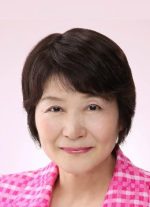Poster title
A Case Report on Acupuncture Treatment for Systemic Sclerosis
Presentation summary
Background :
Systemic sclerosis (SSc) is a chronic autoimmune disease characterized by fibrosis of the skin and internal organs and vascular dysfunction. There is no established cure. This report describes a case in which acupuncture was used as an adjunct to conventional treatment.
Case Presentation :
A 54-year-old woman complained of finger stiffness, edema, and coldness. Her medical history included atopic dermatitis, irritable bowel syndrome, and acute pancreatitis. Family history included rheumatoid arthritis and Sjögren’s syndrome.
Since around 2020, she has experienced Raynaud’s phenomenon, cold intolerance, fatigue, photophobia, anddysphagia. A skin biopsy in December 2022 confirmed systemic sclerosis, showing increased and disorganized collagen fibers. While traditional Kampo medicine (Tokishakuyakusan) improved her skin symptoms, coldness, fatigue, esophageal hypomotility, and Raynaud’s persisted. Acupuncture was introduced as a complementary therapy.
Lab data : ANA 1:1280, anti-Scl-70 negative, anti-centromere and anti-mitochondrial antibodies positive, IgE897 IU/mL, WBC 5700/μL, eosinophils 21%.
Intervention :
Treatment focused on improving peripheral circulation and general vitality and relieving dysphagia and epigastric discomfort. Techniques included Extraordinary Vessel combinations (LU7+KI6 or PC6+SP4), needling of Baxie points, and moxibustion with a stick on CV12, CV4, and BL23. Roller acupuncture was usedas needed. Sessions were held weekly.
Results :
After treatment, the patient reported improved finger mobility, reduced coldness and fatigue, better swallowing, and weight gain.
Discussion :
This early-stage case with mild dysfunction showed positive responses to acupuncture. Its regulatory effectson circulation and autonomic function may relieve systemic symptoms. Acupuncture could serve as a valuable adjunctive therapy for improving the quality of life in SSc patients.
Informed consent was obtained from the patient.
Conflict of interest
No

mkam@nagumo.ptu.jp